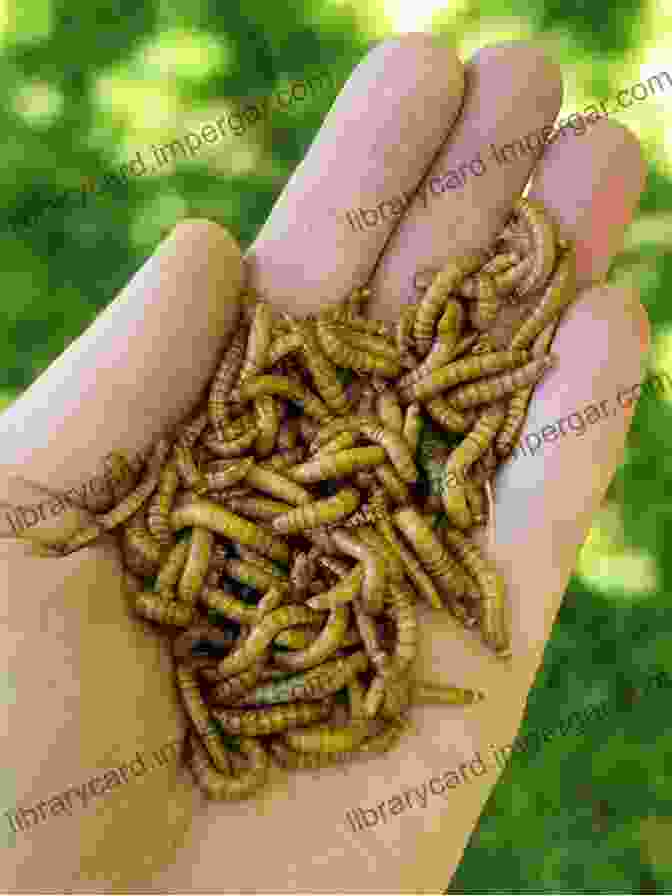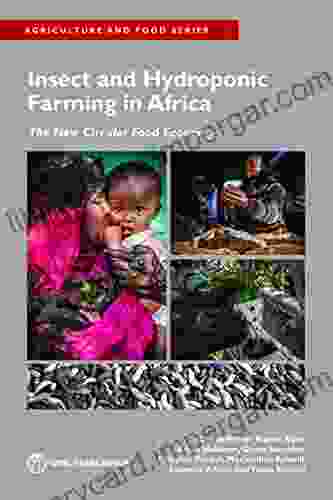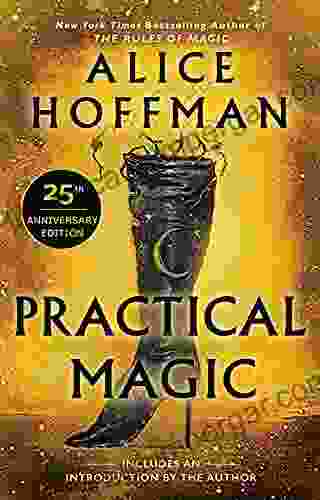Insect and Hydroponic Farming in Africa: A Sustainable Solution for Food Security

Africa stands at a crossroads, enfrentar with the daunting challenge of food insecurity and the pressing need for economic development. Traditional farming practices have struggled to keep pace with the continent's growing population, leaving millions vulnerable to hunger and malnutrition. However, two innovative agricultural approaches - insect farming and hydroponic farming - offer a promising solution.
4 out of 5
| Language | : | English |
| File size | : | 23717 KB |
| Text-to-Speech | : | Enabled |
| Screen Reader | : | Supported |
| Enhanced typesetting | : | Enabled |
| Print length | : | 428 pages |
The Rise of Insect Farming
Insects, a rich source of protein, vitamins, and minerals, have long been consumed as food in many African cultures. Insect farming, the practice of raising insects for food and other products, presents a sustainable and nutritious alternative to traditional livestock farming.

Insect farming offers numerous advantages:
- High nutritional value: Insects are packed with protein, essential amino acids, vitamins, and minerals.
- Sustainable feed source: Insects can be fed on organic waste, reducing the environmental impact of livestock farming.
- Compact and efficient: Insect farming requires less land and resources than traditional livestock farming.
Hydroponic Farming: Growing Crops Without Soil
Hydroponic farming involves growing plants in nutrient-rich water solutions instead of soil. This technique allows for precise control over plant growth conditions, resulting in higher yields and faster growth. Hydroponic farming is particularly well-suited for urban areas and regions with limited access to land or water.

Key benefits of hydroponic farming include:
- Increased yield: Plants grown hydroponically typically produce higher yields than soil-based crops.
- Faster growth: Hydroponic systems provide plants with optimal nutrients and water, resulting in faster growth rates.
- Reduced water consumption: Hydroponic systems use 90% less water than traditional farming methods.
The Transformative Potential in Africa
The adoption of insect and hydroponic farming in Africa has the potential to revolutionize the continent's agricultural sector. These innovative approaches offer solutions to many of the challenges facing African farmers.
Solving Food Insecurity: Insect and hydroponic farming can provide a reliable source of nutritious food for vulnerable populations. Insects are a rich source of protein and other essential nutrients, while hydroponic systems can produce fresh produce in urban areas or regions with limited land availability.
Economic Growth: Insect and hydroponic farming create new income-generating opportunities for farmers and entrepreneurs. Insect farming can be integrated into existing agricultural systems, providing farmers with an additional source of revenue. Hydroponic farming can create jobs in urban areas, where traditional agriculture is not feasible.
Environmental Sustainability: Insect and hydroponic farming are environmentally friendly approaches that reduce the need for land, water, and pesticides. Insect farming utilizes organic waste as feed, reducing the environmental footprint of livestock farming. Hydroponic systems conserve water and reduce fertilizer runoff, contributing to sustainable water management practices.
Insect farming and hydroponic farming hold immense potential for transforming the agricultural landscape in Africa. These innovative approaches offer solutions to food insecurity, economic growth, and environmental sustainability. By embracing these technologies, African countries can unlock new opportunities for their farmers, improve food security for their populations, and contribute to a more sustainable future.
To learn more about insect and hydroponic farming in Africa, I highly recommend exploring the following resources:
- Food and Agriculture Organization of the United Nations: Insect Farming
- The World Bank: Hydroponic Farming
4 out of 5
| Language | : | English |
| File size | : | 23717 KB |
| Text-to-Speech | : | Enabled |
| Screen Reader | : | Supported |
| Enhanced typesetting | : | Enabled |
| Print length | : | 428 pages |
Do you want to contribute by writing guest posts on this blog?
Please contact us and send us a resume of previous articles that you have written.
 Book
Book Novel
Novel Page
Page Chapter
Chapter Text
Text Story
Story Genre
Genre Reader
Reader Library
Library Paperback
Paperback E-book
E-book Magazine
Magazine Newspaper
Newspaper Paragraph
Paragraph Sentence
Sentence Bookmark
Bookmark Shelf
Shelf Glossary
Glossary Bibliography
Bibliography Foreword
Foreword Preface
Preface Synopsis
Synopsis Annotation
Annotation Footnote
Footnote Manuscript
Manuscript Scroll
Scroll Codex
Codex Tome
Tome Bestseller
Bestseller Classics
Classics Library card
Library card Narrative
Narrative Biography
Biography Autobiography
Autobiography Memoir
Memoir Reference
Reference Encyclopedia
Encyclopedia Alma Guillermoprieto
Alma Guillermoprieto David Taylor
David Taylor Ellynanne Geisel
Ellynanne Geisel Herbert Okolowitz
Herbert Okolowitz Alex Terego
Alex Terego Elizabeth Mcleod
Elizabeth Mcleod Robert Allen Bartlett
Robert Allen Bartlett Alex Caldon
Alex Caldon Amber Hunt
Amber Hunt Alexander Burton
Alexander Burton Peter Felten
Peter Felten Paul Goldman
Paul Goldman Alexander W Allen
Alexander W Allen Alice Ozma
Alice Ozma Bob Lewis
Bob Lewis Alessandro Stanziani
Alessandro Stanziani Alex Daly
Alex Daly Kenneth Hardy
Kenneth Hardy Allison Fallon
Allison Fallon Alastair Thomson
Alastair Thomson
Light bulbAdvertise smarter! Our strategic ad space ensures maximum exposure. Reserve your spot today!

 Alexander BlairStill Catholic After All These Years Abridged Version: A Guiding Light for...
Alexander BlairStill Catholic After All These Years Abridged Version: A Guiding Light for...
 Dion ReedPractical Obstetrics by Joachim Dudenhausen: Your Essential Guide to Safe and...
Dion ReedPractical Obstetrics by Joachim Dudenhausen: Your Essential Guide to Safe and... Derek CookFollow ·12.7k
Derek CookFollow ·12.7k Robert BrowningFollow ·3.9k
Robert BrowningFollow ·3.9k Allen ParkerFollow ·6.4k
Allen ParkerFollow ·6.4k Cortez ReedFollow ·5.2k
Cortez ReedFollow ·5.2k Bryson HayesFollow ·18.6k
Bryson HayesFollow ·18.6k John Dos PassosFollow ·16.5k
John Dos PassosFollow ·16.5k Percy Bysshe ShelleyFollow ·15.5k
Percy Bysshe ShelleyFollow ·15.5k Pat MitchellFollow ·10.5k
Pat MitchellFollow ·10.5k

 Ignacio Hayes
Ignacio HayesUnveiling the Secret Spitfires: Britain's Hidden Civilian...
: The Untold Story of Britain's...

 Scott Parker
Scott ParkerLiving With Schizophrenia: A Father and Son's Journey
Schizophrenia is a serious...

 Ted Simmons
Ted Simmons"From Sign Up to Pass Out": The Shocking and Immersive...
Step into the...

 John Keats
John KeatsThe Development of Biographies and Philosophical...
The Alluring...

 Dan Brown
Dan BrownCapture Your Dream Wedding with Digital Wedding...
Your wedding day is...
4 out of 5
| Language | : | English |
| File size | : | 23717 KB |
| Text-to-Speech | : | Enabled |
| Screen Reader | : | Supported |
| Enhanced typesetting | : | Enabled |
| Print length | : | 428 pages |










